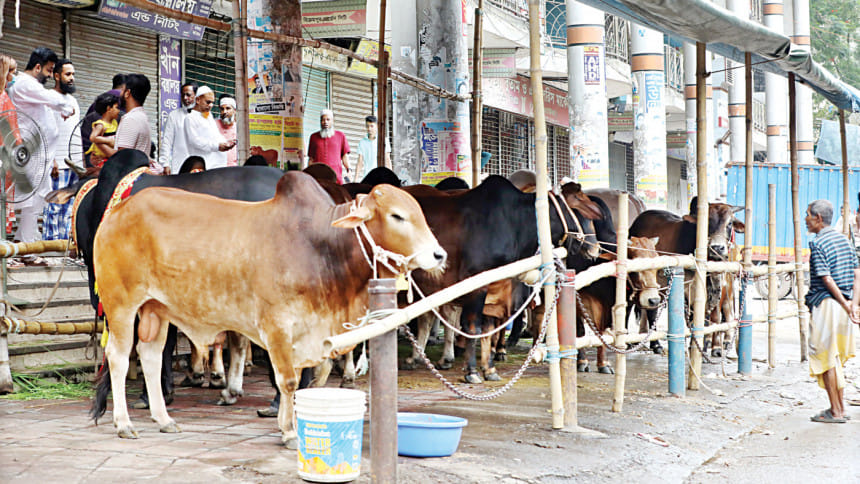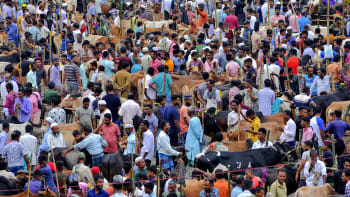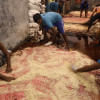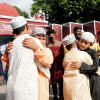Civic duties during Eid-ul-Azha

The sacrifice of animals on the occasion of Eid-ul-Azha commemorates a sacrifice, which symbolises utmost loyalty and complete submission to the Almighty -- this is the first part of the Eid rituals.
The second is to remember the important principle in Islam that "cleanliness is half of faith". However, the aftermath of Eid-ul-Azha is a messy affair.
I am afraid this is the truth.
This is an act which defies Islamic doctrines on cleanliness. These religious teachings benefit both society and us. It is up to Muslims to be aware of this guidance and learn and apply it anywhere and everywhere. Let us for once keep our environment clean and maintain proper hygiene.
For reasons only known to Dhakaites, they forget their civic sense. Our lack of civic sense baffles me hence my laments. The importance of a prompt clean-up after slaughtering animals is something we should not forget.

There is also an unspoken race to flaunt affluence. The street in front of luxury apartments becomes personal cattle grounds, where a minimum of 10 bulls are stationed. One can imagine the powerful stench of manure and urine produced.
Come Eid day, they are laid down on the very same street for the slaughter; the untidy, chaotic mess we tend to make on the open streets is beyond comprehension.
Kudos to our mayors and city corporations that for the last few years they undertook prompt action to clean up after the rituals were completed. The city corporations have taken elaborate measures to make the city clean within hours of the slaughter. We do have slaughterhouses but they are ill-equipped to handle the Eid pressure and thus citizens take up the streets as their own.
The deployment of thousands of sanitation workers, along with the distribution of eco-friendly biodegradable polythene bags, bleaching powder, jute bags, and disinfectants show their commitment to maintaining cleanliness. Requisitions have been made for extra dump trucks, water tanks, and garbage trucks.

However, we as citizens must cooperate and dispose of our qurbani waste responsibly. It is also up to us to clean up the streets, garages, staircases and lifts with cleaning agents.
Eid-ul-Azha is very important if you consider the economic side of it. The cattle farms, and villagers target this festival while rearing the cows and goats. Cattle rearing is an expensive affair. I know a person working as a driver in this city, who takes cattle rearing as a side business. He buys cattle and lets his father at the village take care of it. Young green grass with grass hay, straw, silage, compressed and pelleted feeds, oils and mixed rations, and sprouted grains and legumes are fed to the animals. These villagers and farmers are struggling yet they target this festival to cover the cost.
Then this is the time when tanneries get to buy, in bulk, precious cowhide in the natural, unbleached form. There are other economic implications and business turnovers of this festival that cannot be ignored.
So, do not litter your streets and garages; treat your cattle well and help the business in one of the biggest Muslim festivals of the year.

 For all latest news, follow The Daily Star's Google News channel.
For all latest news, follow The Daily Star's Google News channel. 









Comments